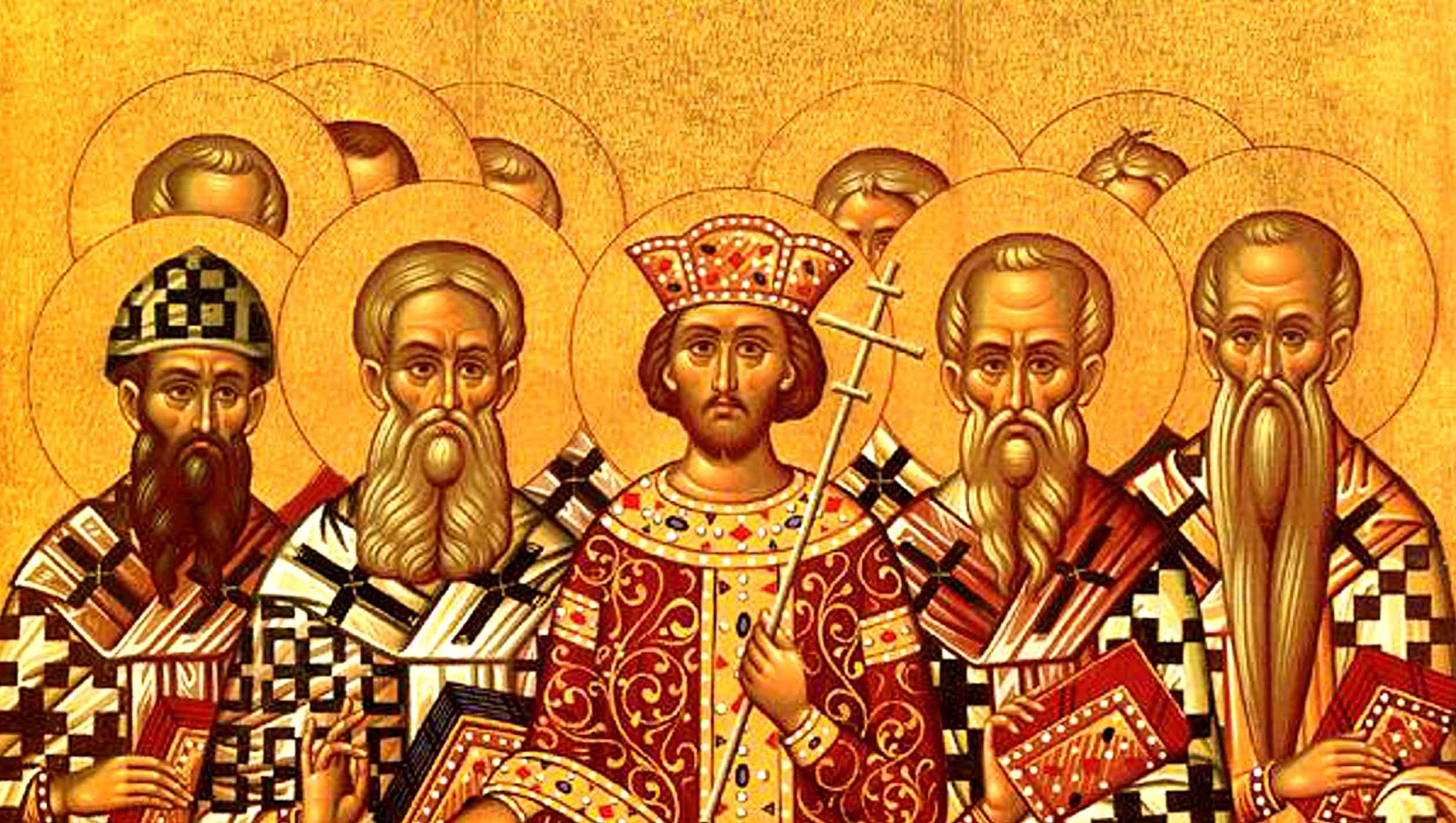Why We Should Read the Creeds
By Judson Taylor
Senior Director of Marketing and Communications
This year marks the 1700th anniversary of the Nicene Creed—a moment worth celebrating. In 325 A.D., Christian leaders from across Europe, Africa, and Asia—representing places like Spain, Egypt, and Persia—gathered at the Council of Nicaea to affirm what the Bible teaches about Jesus: that he is fully God, eternally begotten, not made. That initial gathering produced a first draft of what would later be completed in 381 as the Niceno-Constantinopolitan Creed—a statement of faith that Christians have been declaring ever since.
Even older in form is the Apostles’ Creed, shaped by the early church as a summary of gospel truth, often used at baptisms. While it wasn’t written by the apostles themselves, it reflects the heart of their teaching—and has stood as a clear, memorable declaration of Christian faith. This is the creed you are likely to hear in our worship services.
So why should we, as evangelical Presbyterians in 2025, make a habit of reading and saying these creeds aloud?
Because these ancient words still form us in powerful, practical ways.
First, the creeds ground us in Scripture. Every line is drawn from the Bible. They’re not additions to Scripture but faithful summaries of it—what our denomination (the Evangelical Presbyterian Church) calls “the essentials of our faith.” 1 When we say, “I believe in God the Father Almighty, Maker of heaven and earth,” we’re echoing Genesis 1. When we say that Jesus is “God from God, Light from Light, true God from true God,” we’re quoting the theology of John 1 and Hebrews 1. These words sharpen our understanding of who God is and what he has done.
Second, they train our hearts and minds. The creeds offer clarity in a time of confusion. They remind us of what matters most: the Trinity, the incarnation, the resurrection, the Church, the forgiveness of sins, and the life everlasting. They help keep secondary issues in their proper place and unify us around the gospel core.
Third, they connect us to the global and historic Church. When you say the Apostles’ or Nicene Creed, you are joining your voice with generations of believers—from the first century to today, from every nation and denomination. That’s no small thing. In a fragmented world, the creeds remind us that we belong to something far bigger than ourselves.
And perhaps most profoundly, they invite us into allegiance. Saying the creeds isn’t just reciting beliefs—it’s professing our trust in the One we believe in. It’s a declaration of faith in Jesus Christ above any other power. That’s how the earliest Christians used them: as a baptismal confession, a response to the question, “Do you believe in him?”
Saying the creeds can also deepen your devotional life. Try reading one slowly during your morning devotions or as part of your family prayer time. Use it as a launching point for Bible study or as a spiritual reset during a busy week. You don’t need a seminary degree to benefit—just a heart that wants to grow in Christ.
So as we celebrate the Nicene Creed’s 1700th birthday, take this as an invitation. Say the creeds. Reflect on them. Let them shape your worship, sharpen your theology, and strengthen your faith.
They are ancient words. But they are living truth.
And they’re still building the Church today.
Judson
- [1] Yes, the phrase “he descended into hell” in the Apostles’ Creed has been a point of debate among evangelicals, especially those who prize biblical faithfulness. But in Reformed circles (including the Evangelical Presbyterian Church), the phrase is often affirmed with careful explanation. For example, the Heidelberg Catechism says it means that Christ “suffered unspeakable anguish, pain, and terror of soul, especially on the cross”—pointing to his spiritual suffering under judgment, not necessarily a literal descent. And J.I. Packer, like many evangelical Anglicans, interprets this line not as Jesus going to a place of torment, but as him entering the realm of the dead (Sheol/Hades), in full solidarity with humanity. He writes that this phrase in the Creed underscores the reality of Jesus’ death. He says: “The words mean that Jesus really died, and that it was no illusion or semblance of death, but the real thing. He tasted death as all men do, and that means leaving this world for the next.” (J.I. Packer, Affirming the Apostles’ Creed) ↩︎
